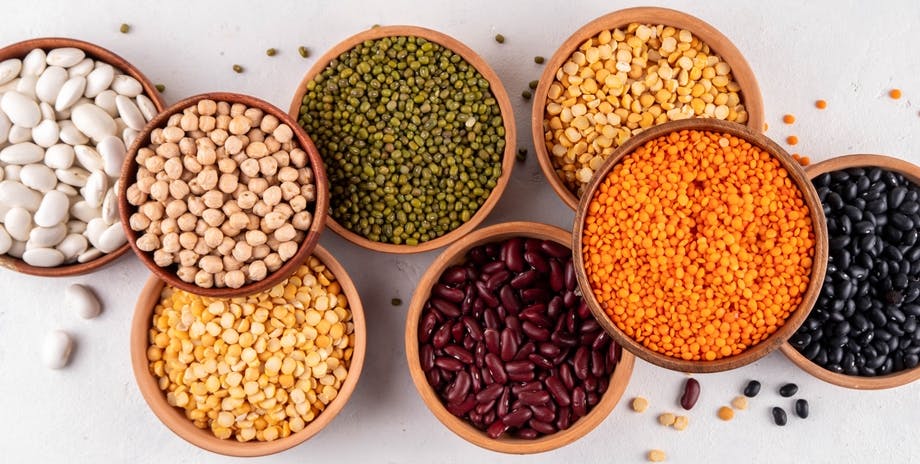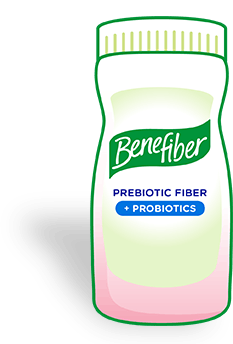Managing Bloating and Gas After Heavy Meals


A satisfying meal doesn’t have to end with that uncomfortable bloated feeling. Certain foods that can cause gassiness and bloating are heavy in fat content.1 However, even some healthier, high-fiber foods can also lead to mild discomfort. See which foods are most likely to make your belly feel like an overinflating balloon,2 and get tips on how to enjoy your favorite foods while helping to keep belching, gas and bloating to a minimum.
What foods make you feel bloated?
The reason why you might feel bloating is based on digestion. The food you eat gets broken down in the acids and enzymes in your stomach as part of the digestive process.1 But some foods take more time to digest than others, which can lead to a buildup of gases in your stomach.1
Beans and lentils
While these legumes are an excellent source of fiber, they are also high in carbohydrates and oligosaccharides, a sugar that doesn’t easily digest.1 To help eliminate potential digestive issues, it can help to soak dried beans and lentils ahead of time so that they can be easier to digest.1
Dairy
The chance of developing lactose intolerance can increase with age and adulthood.3 Some of the most common dairy products such as milk, butter, cheese, ice cream and yogurt can cause bloating and other digestive issues if you are lactose intolerant.1
Carbonated drinks
Consuming any drink that has bubbles will add more air to your stomach, and since these bubbles have nowhere else to go until the digestion process is finished, bloating can occur.1
Cruciferous vegetables
This category of healthy vegetables includes broccoli, cauliflower, and brussels sprouts; while this produce is packed with healthy nutrients, there are also sugars that can be tougher to digest, especially if the vegetables are in their raw state.1
Garlic and onions
Both of these common cooking ingredients include fructan, a soluble fiber that can lead to digestive issues.1 However, if they’re cooked, they can create less of an impact on your stomach.1
Wheat, rye, and barley
These whole grains are high in insoluble fiber, which is what makes bowel movements solid.1 Insoluble fiber is also harder to digest, so these grains can remain in your gut for longer.1 Those who have celiac disease are also likely to experience digestive issues from the gluten proteins in these sources.1 In addition, the combination of these grains plus carbonation is what makes beer especially suspect to causing feelings of bloating.1
How to feel light after a heavy meal
Fiber-rich foods can help alleviate that bloating sensation by pushing the digestive process at a regular and healthy pace.2 Two types of fiber are crucial to helping your digestive process proceed smoothly: soluble fiber slows down food moving through your system, adding bulk and solidity to your bowel movements.2 Insoluble fiber also holds onto water to make stool softer and easier to pass.2
Try eating the following foods that can help reduce bloating:2
- Milk and dairy alternatives
- Cooked cruciferous vegetables
- Water (to soften stool)
- Oatmeal
- Watermelon
- Celery and cucumbers
- Green tea (which acts as a natural laxative)
- Pineapple (with bromelain, a natural enzyme that aids digestion)
- Fermented foods like kimchi, sauerkraut, and kombucha
Eating slowly can also prevent the chance of feeling bloated, since eating quickly allows more air to enter into your stomach. This can feel like having a balloon in your stomach.2,4
In addition, positive lifestyle changes such as walking after eating, quitting smoking, or treating symptoms of heartburn, acid reflux or GERD can also help with eliminating the effects of bloating.4
If you need to add a fiber supplement to your daily routine that supports gut health, try new Benefiber Prebiotic Fiber Caplets. This plant-based prebiotic caplet can nourish the good bacteria that exist naturally in your gut, so you can feel comfortable all day.
Show References
- 15 Foods That Can Cause Bloating. Cleveland Clinic. https://health.clevelandclinic.org/foods-that-cause-bloating/. Accessed 7/2/2024.
- Foods That Help Reduce Bloating. Cleveland Clinic. https://health.clevelandclinic.org/foods-that-help-with-bloating/. Accessed 7/2/2024.
- Lactose intolerance: from diagnosis to correct management. National Library of Medicine. https://pubmed.ncbi.nlm.nih.gov/24443063/. Accessed 7/2/2024.
- Belching, gas and bloating: Tips for reducing them. Mayo Clinic. https://www.mayoclinic.org/diseases-conditions/gas-and-gas-pains/in-depth/gas-and-gas-pains/art-20044739/. Accessed 7/2/2024.
Nourish the Goodness Inside
Benefiber is an easy way to add fiber to your life.
$1.50 OFF BENEFIBER






